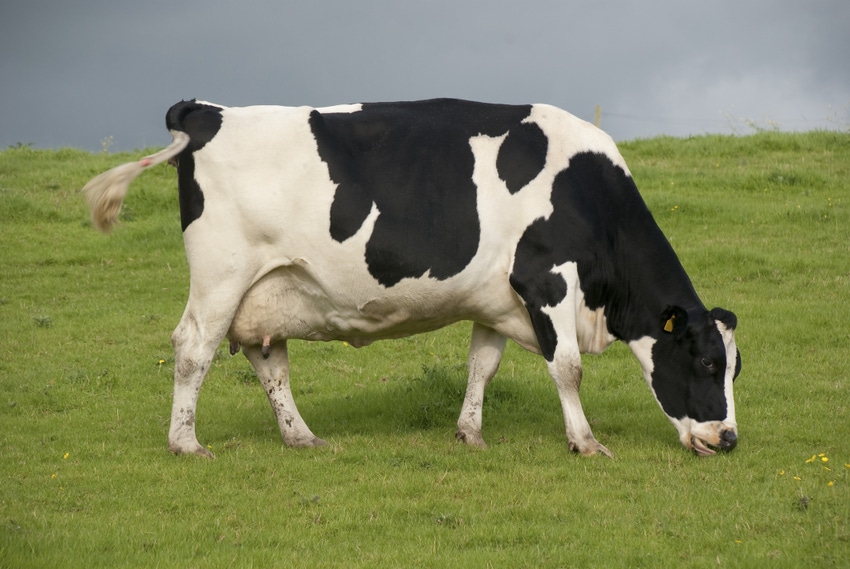National Organic Program validates organic certifications for nation’s largest organic dairy based in Colorado.

The U.S. Department of Agriculture’s National Organic Program (NOP), the nation’s authority for properly certified organic food production, officially closed a complaint filed May 2, 2017, against Aurora Organic Dairy’s (AOD) High Plains Dairy in Gill, Co., finding the company in full compliance with the pasture access and grazing regulations required of organic dairy production.
The Cornucopia Institute filed formal legal complaints against AOD, the nation’s largest organic milk producer, and its organic certifier, the Colorado Department of Agriculture, following a report in the Washington Post that challenged the company’s grazing practices. AOD is the largest supplier of private-label, or store brand, organic milk in the U.S., supplying such retail giants as Walmart, Costco, Target and major supermarket chains for their own proprietary brands.
“The NOP confirmed what we have known all along: that Aurora Organic Dairy is a 100% organic company. Their investigation included a thorough review of our facilities, our grazing practices and the records we maintain to document compliance with the organic rule,” said Marc Peperzak, AOD founder and chief executive officer. “We’ve confronted false criticism with facts by fully and transparently cooperating with this enforcement process, and this outcome clearly validates our organic certifications.”
A widely circulated media report that falsely claimed that the company’s farming methods and milk may not be organic was not informed by the actual requirements of the organic rule, AOD said. Following their investigation, NOP issued a letter to AOD dated Sept. 27, 2017, stating, “We determined that Aurora’s livestock and pasture management practices comply with existing USDA organic regulations and NOP policies.” The agency has now closed the case, concluding that no part of the complaint had merit. At all times, AOD has maintained continuous valid organic certificates for its products.
The same media report suggested that milk testing can determine if a product’s organic grazing requirements are being met. However, NOP’s letter further stated that “testing based on nutrient levels is not part of the existing organic standards and, therefore, cannot serve as a criteria for assessing compliance.” Organic livestock producers are required to rigorously plan and document herd and pasture management that maximizes the grazing season. At times, non-continuous grazing is used to protect soils, plants and animal health as part of this plan.
“It is unfortunate that some activists continue to perpetuate the misguided belief that only small dairy farms can be organic, when the organic rule, itself, is scale neutral,” Peperzak said. “The truth is, our size makes a positive difference. Not only have we converted many thousands of pasture acres to organic agriculture, but we have supported the conversion of tens of thousands more acres for other organic feed crop producers. Our scale has also helped create markets for all organic milk producers.”
“Aurora Organic Dairy has been a pioneer in organic production and animal welfare, and our certified dairy products are and have always been organic. We join our industry peers in calling for additional resources for the NOP to encourage the proper enforcement of organic rules and to protect the integrity of the USDA organic seal that consumers trust,” Peperzak said.
Cornucopia was unhappy with the determination and questioned whether USDA’s follow-up visits were prearranged. Cornucopia filed a document request under the Freedom of Information Act on Thursday to determine whether the NOP investigation was based on a surprise visit or prearranged appointment (its pattern in the past). Cornucopia said it will ascertain which personnel were involved, including their professional backgrounds qualifying them to make a final determination in the Cornucopia complaint.
“The lack of justice in the Aurora matter comes at a time of a national surplus in the wholesale organic milk market. Ethical, family-scale farmers and their marketing partners are currently suffering severe financial stress. Most organic dairy producers are enduring substantial cuts to their pay price and may be placed on quotas. This has forced some to return to conventional production and others to exit dairying altogether or contemplate doing so,” said Mark Kastel, Cornucopia Institute co-director and senior farm policy analyst.
About the Author(s)
You May Also Like



.png?width=300&auto=webp&quality=80&disable=upscale)

